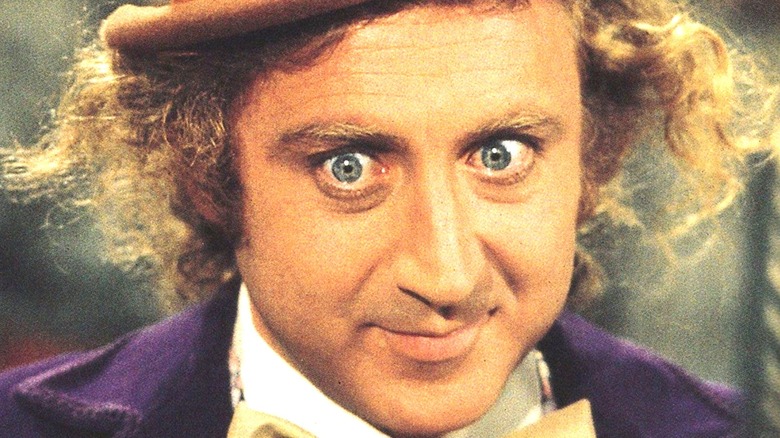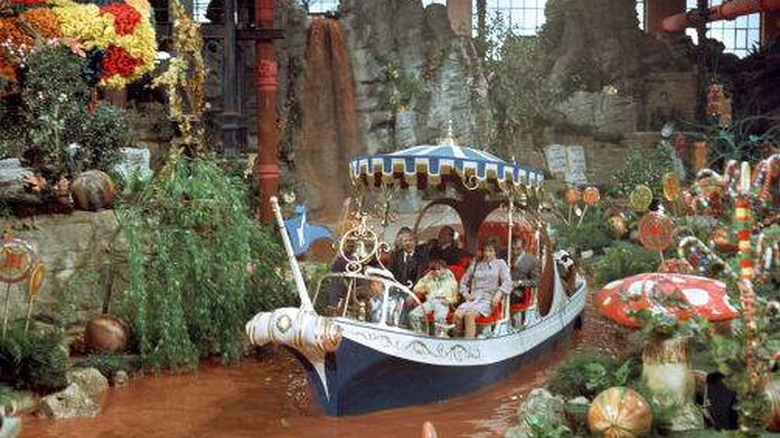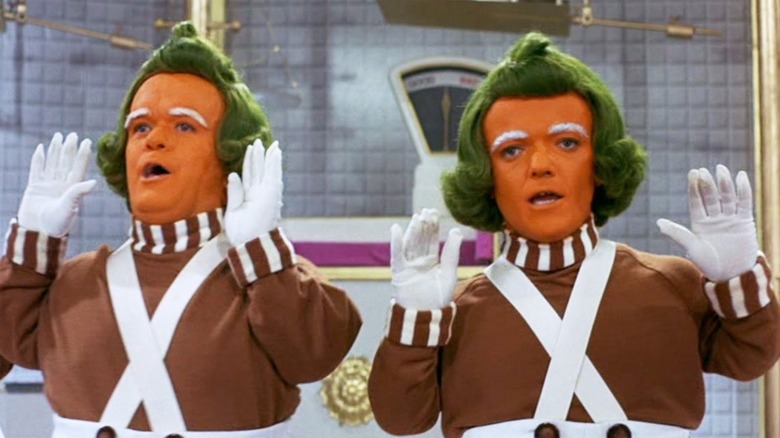Is Willy Wonka A Bad Guy?
"Charlie and the Chocolate Factory" is a classic story about how greed and selfishness deserves nothing but punishment for all perpetrators, regardless of age. The book's two movie adaptations follow this moral to a T, dispensing karmic justice to the ethically unaligned children galivanting about Willy Wonka's factory with little regard for anything but their own desires. Meanwhile, good children like Charlie are rewarded with multi-million dollar candy empires run by a good and just CEO who knows what's best.
Or does he?
We wouldn't be the first to point out how Wonka's factory has more than a few suspicious things going on behind the scenes — all of which call into question the moral character of Wonka himself. Of course, we learn by the end of the story that Wonka is just a sympathetic, lonely man looking for someone good-hearted enough to succeed his candy empire without being impeded by greed. Still, many would say that isn't enough of an excuse. This begs the question, is WIlly Wonka a bad guy? Well, yes, and here is why.
Where are all the safety precautions in Wonka's factory?
First, let's get the obvious out of the way. Whether the kids deserved it or not, Willy Wonka had no right allowing each child to harm themselves in the ways that they did. Perhaps he could not have avoided Violet suddenly snatching the three-course meal gum from his hands, but he certainly could have put a safety railing around the chocolate river and saved poor Augustus Gloop a trip to the ER. He also could have stopped Veruca Salt's bratty rampage at any point before she was judged a bad egg (or nut, depending on which version you're watching) and tossed into the garbage chute.
In the real world, accidents like these are why Americans have the Occupational Safety and Health Administration. Companies are legally required to enact a variety of precautions in any location, especially in manufacturing sites. Not having a safety railing around your factory-wide chocolate river or a safety guard around the entrance to the person-sized chute leading to an incinerator are two very big no-nos that could land Wonka into some very hot water. At worst, this makes him carelessly oblivious to the safety and working conditions of his staff. At worst, he's intentionally cutting corners to save a few dimes.
Willy Wonka is a basically a slave owner
One of the biggest mysteries surrounding Willy Wonka's factory is the presence of the Oompa Loompas. Where do they come from? Why do they seem to exclusively work for Wonka? Does he pay them fair wages, and are they entitled to workers' compensation if they suffer some horrible, candy-related accident? For all we know, Willy Wonka is running an illegal Oompa Loompa slave market for his own monetary gain.
Unfortunately, the truth is closer to this than we might want to admit. In the books, the Oompa Loompas hail from the dense jungles of Loompaland in Africa. The Oompa Loompas themselves possess a strong craving for cocoa beans, and are limitlessly compensated with them in lieu of money. This portrayal has been criticized heavily for being similar to the treatment of African slaves in the real-world Americas (as explained by "Wild Things! Acts of Mischief in Children's Literature").
Granted, the Oompa Loompas themselves don't seem overly-troubled by their status. They definitely regard all of the missing safety measures as optional, attributing the kids' injuries to their own misdeeds, and they likely consider the cocoa beans as fair payment. Still, they probably don't know any better. Oompa Loompas never seem to leave the factory, meaning they likely have little knowledge of what the world outside of its walls is like. By our standards, Wonka is flagrantly and illegally taking advantage of a group of people who are unable to defend themselves. That's about as evil as it gets.


